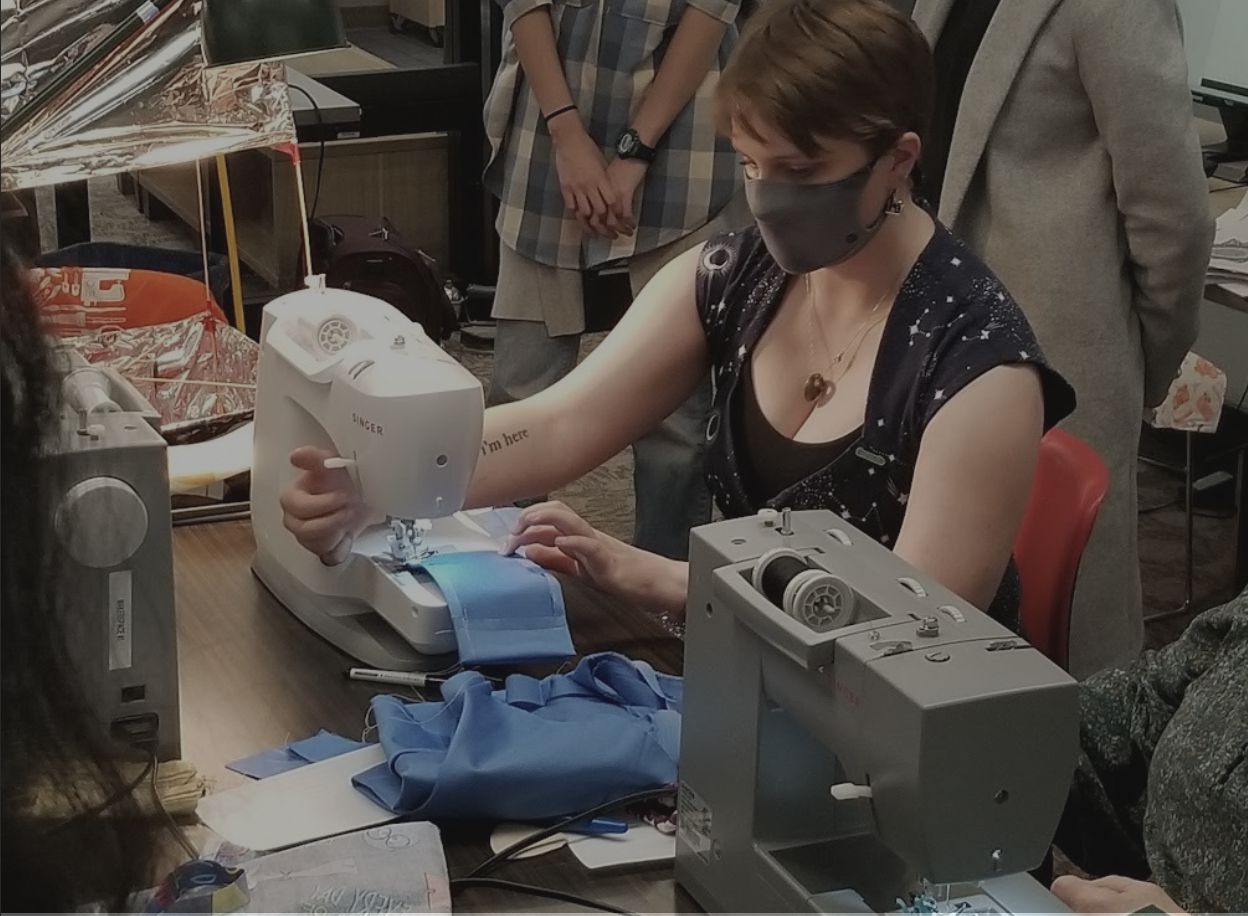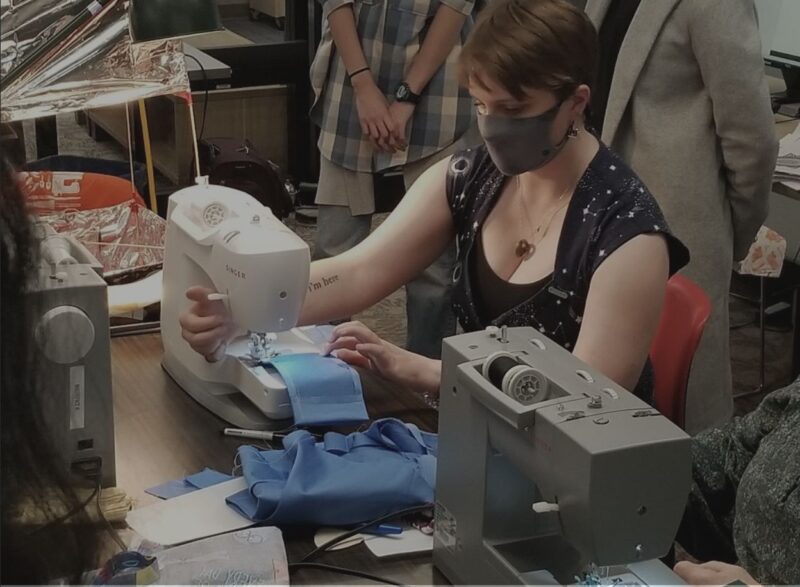Slow fashion in a fast-paced world


A PhD candidate at Laurier with a sense of style and a passion for DIY, Denise Springett learned to sew during the pandemic.
Having nurtured an interest in sewing since she was young, Springett took the opportunity to learn about slow fashion and began teaching herself by sewing hundreds of face masks with uniquely patterned fabric.
“Sewing masks brought some joy and creativity into what was otherwise a very scary time,” said Springett.
According to the Journal of Cleaner Production, clothes today are made quickly, typically unethically and using materials that are not made to last.
Springett defines slow fashion as a practice and lifestyle that presents an alternative way of looking at the clothes that keep our bodies warm – focused on ethical labor, sustainable materials, and taking care of your clothes. Slow fashion is process-based, centered around engaging with what you have the privilege of using every day.
An important facet of this process is recognizing how close we are to a world in which people knew who made the clothes on their back. As a practice, it pays respect to generations of people before us who consumed thoughtfully, a reality that we are at most two generations away from.
“None of this technology is new, it’s just been pushed aside by the shiny, fancy, convenient shopping malls. Slow fashion is a way to slow down and have respect for what keeps our bodies warm and protected…it requires a very different relationship with my time and clothing,” said Springett.
Interested in bringing her passion for slow fashion to the Laurier community, Springett began working with the Laurier Maker Space.
Located on the second floor of the library, the Maker Space is an open invitation for students to create whatever interests them. From pre-threaded sewing machines to 3D printers, the heart of the space is community and creativity.
Springett collaborated with the Maker Space to teach accessible sewing workshops, which enabled and encouraged participants to meaningfully engage with slow fashion in their daily lives, from creating their own shopping bags to mending clothes.
Importantly, slow fashion does not equate to the rejection of modernity. Instead, it encourages living conscientiously. Like anything else, it’s best done in a community.
Online communities helped shape Springett’s understanding of sustainable fashion, from historical fashion communities on YouTube to Ravelry.com, a site dedicated to bringing together textile artists and sharing their work.
For people interested in getting started today, Springett suggests starting with what you have around you.
Start with what you already have and be creative, don’t let anyone tell you you’re doing it the wrong way. If we focus on the process and the learning, we can get over the idea that everything has to be perfect.
Springett


